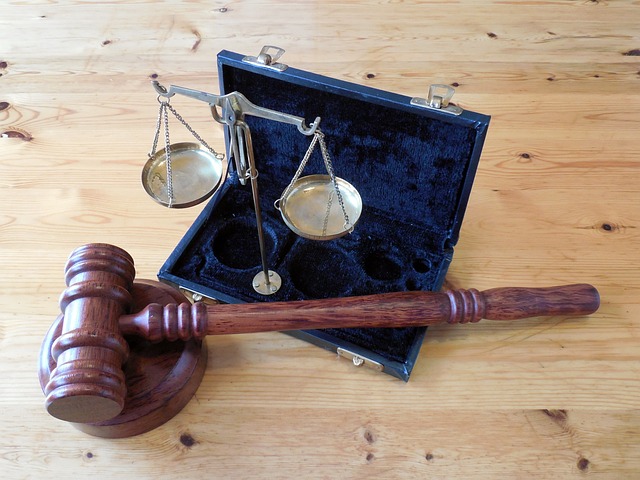Consumer protection suits serve as crucial legal safeguards against unethical business practices, with co-founders needing to understand these suits to develop robust conflict resolution strategies. By identifying potential issues and learning from successful defenses, founders can prevent legal disputes, enhance customer trust and loyalty, build a positive reputation, and gain a competitive edge. Early mediation, arbitration, or legal counsel is vital for navigating complex structures and securing fair outcomes in co-founder disputes, fostering harmonious partnerships. In consumer protection cases, exploring conflict resolution methods like mediation or arbitration can lead to amicable settlements while avoiding costly litigation. Effective communication, collaboration, and understanding of consumer protection laws are key tools for co-founders, demonstrating expertise in protecting consumer rights and mitigating risks.
Consumer protection suits play a pivotal role in ensuring fair business practices, especially within startups where co-founders must navigate complex dynamics. This article explores the intricate world of consumer protection litigation from a co-founder’s perspective. We delve into definitions, common dispute causes, and powerful conflict resolution strategies like Alternative Dispute Resolution (ADR). Additionally, we highlight legal approaches and communication techniques to foster collaboration, offering valuable insights for co-founders seeking effective conflict management. Discover how these tools empower founders to mitigate risks and build durable partnerships.
- Understanding Consumer Protection Suits: Definitions and Relevance for Co-Founders
- Common Causes of Disputes Between Co-Founders
- Alternative Dispute Resolution (ADR) Methods for Peaceful Co-Founder Conflicts
- Legal Strategies for Navigating Consumer Protection Cases
- Effective Communication and Collaboration as Conflict Resolution Tools
Understanding Consumer Protection Suits: Definitions and Relevance for Co-Founders

Consumer Protection Suits are legal proceedings designed to safeguard the rights and interests of consumers against unfair, deceptive, or harmful business practices. These suits play a pivotal role in ensuring that companies adhere to ethical standards and treat their customers fairly. For co-founders navigating the complexities of running a business, understanding these cases is essential for developing robust conflict resolution strategies. By recognizing potential pitfalls and learning from successful defenses, founders can steer their respective businesses clear of legal disputes.
Effective conflict resolution strategies are crucial for achieving extraordinary results in any business venture. Co-founders should be equipped to address consumer concerns proactively and fairly, thereby enhancing customer trust and loyalty. Understanding the nuances of consumer protection laws and developing a comprehensive approach to dispute resolution will not only help them win challenging defenses but also foster a positive reputation and competitive edge in their respective markets.
Common Causes of Disputes Between Co-Founders

Co-founders often have differing visions, leading to disputes that can jeopardize their business partnership. Common causes include misaligned goals, disagreements on strategic decisions, and unequal contributions or share distributions. These conflicts can arise at any point in a startup’s lifecycle, from the initial ideation phase to after successful funding rounds.
Effective conflict resolution strategies for co-founders are crucial throughout all stages of the investigative and enforcement process. Adopting open communication channels, clearly defining roles and responsibilities, and establishing detailed partnership agreements can help mitigate these issues. Moreover, seeking mediation or legal counsel early on, especially when dealing with complex business structures, ensures a fair and winning challenging defense verdict if necessary. The ability to navigate these conflicts successfully contributes to an unprecedented track record of harmonious partnerships and thriving businesses.
Alternative Dispute Resolution (ADR) Methods for Peaceful Co-Founder Conflicts

In the event of a dispute between co-founders, many look beyond traditional litigation to more peaceful and efficient conflict resolution strategies for co-founders. Alternative Dispute Resolution (ADR) methods such as mediation, arbitration, and negotiation offer viable paths to resolving disagreements without the lengthy and costly nature of court proceedings. These approaches are particularly beneficial in startup environments where maintaining a harmonious working relationship is crucial for future success.
Mediation, for instance, involves a neutral third-party facilitator who assists co-founders in reaching an agreement mutually acceptable to both parties. Arbitration, on the other hand, provides a structured process where the disputing parties present their cases before an arbitrator or panel who then renders a binding decision. These ADR methods have proven effective across the country for his clients, often resulting in complete dismissal of all charges and fostering collaborative environments that can even strengthen co-founder relationships.
Legal Strategies for Navigating Consumer Protection Cases

Navigating consumer protection cases requires a strategic approach, especially when co-founders are involved. One key strategy is to explore conflict resolution methods early on, such as mediation or arbitration. These alternatives to litigation can be particularly effective in resolving disputes amicably and efficiently, fostering better working relationships among co-founders. By involving neutral third parties, these processes help in reaching mutually agreeable solutions without the costs and delays often associated with traditional courtroom battles.
Moreover, understanding the legal landscape of consumer protection laws is crucial. Co-founders should be familiar with the unique regulations relevant to their industry, as well as the potential implications of non-compliance. An unprecedented track record of success in handling general criminal defense cases can also instill confidence in clients, demonstrating expertise and a commitment to protecting consumer rights across the country. This knowledge enables founders to make informed decisions, mitigate risks, and ensure their business practices align with legal standards.
Effective Communication and Collaboration as Conflict Resolution Tools

Effective communication and collaboration are paramount in resolving conflicts among co-founders of consumer protection suits. Clear and open dialogue allows for the exchange of perspectives, helping to uncover common ground and mutually agreeable solutions. This approach not only fosters a healthier working relationship but also strengthens the case by showcasing a commitment to resolution rather than adversarial tactics.
By adopting collaborative conflict resolution strategies, co-founders can navigate intricate legal issues with greater efficiency. This is particularly crucial in cases involving corporate and individual clients, where diverse interests and goals must be reconciled. An unprecedented track record of successful collaborations demonstrates the effectiveness of these strategies, fostering trust among philanthropic and political communities seeking fair and just outcomes.
Consumer protection suits can significantly impact startups, especially when co-founders are involved in disputes. Understanding these suits, their common causes, and available dispute resolution methods is crucial for co-founders to navigate potential conflicts effectively. By adopting alternative dispute resolution (ADR) strategies and implementing strong communication practices, co-founders can avoid lengthy legal battles and preserve the integrity of their business partnerships. Ultimately, prioritizing conflict resolution strategies for co-founders is essential to fostering a harmonious and productive environment within the startup ecosystem.






